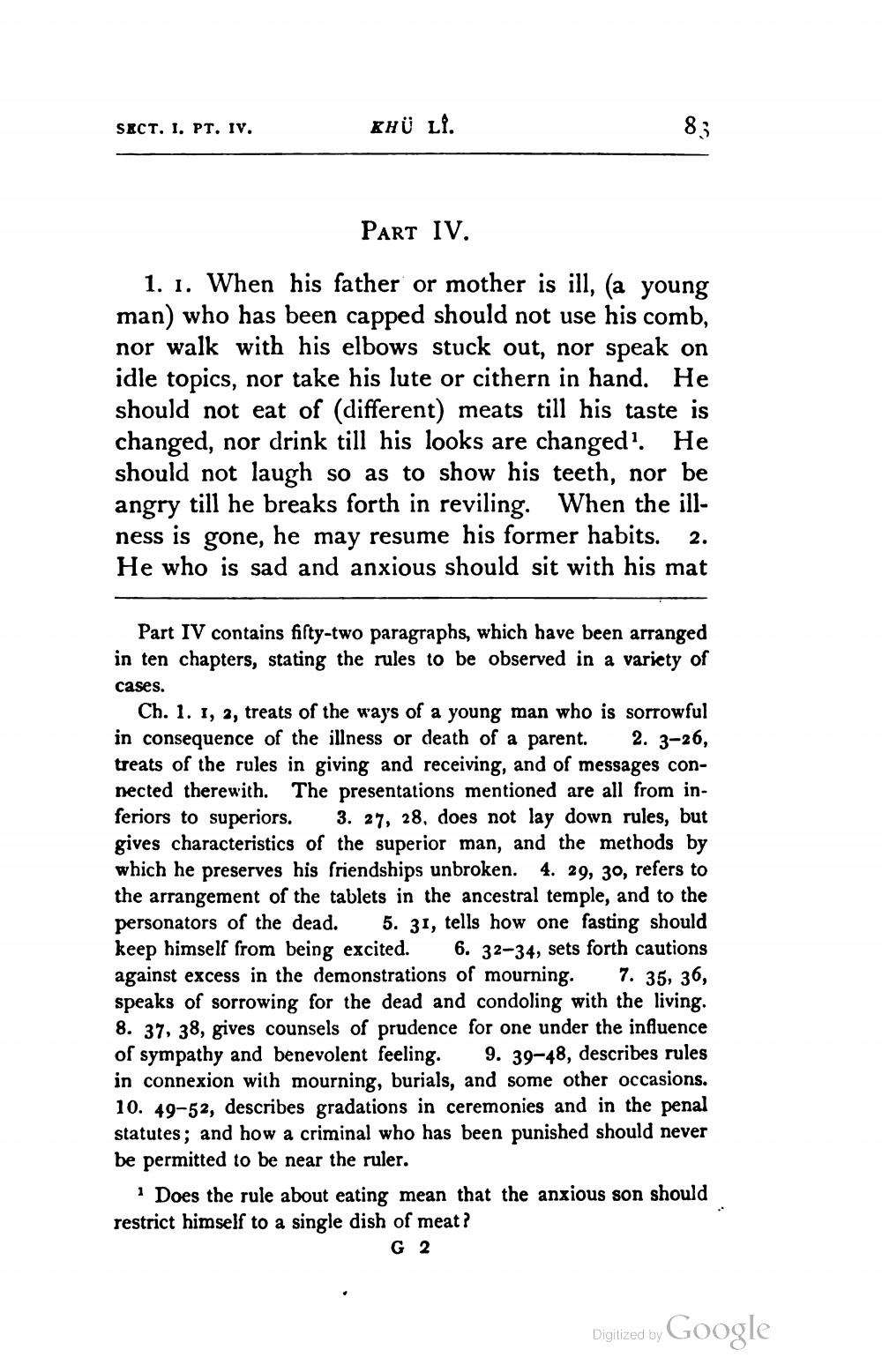________________
SECT. I. PT. IV.
KHU LI.
Part IV.
1. 1. When his father or mother is ill, (a young man) who has been capped should not use his comb, nor walk with his elbows stuck out, nor speak on idle topics, nor take his lute or cithern in hand. He should not eat of (different) meats till his taste is changed, nor drink till his looks are changed'. He should not laugh so as to show his teeth, nor be angry till he breaks forth in reviling. When the illness is gone, he may resume his former habits. 2. He who is sad and anxious should sit with his mat
Part IV contains fifty-two paragraphs, which have been arranged in ten chapters, stating the rules to be observed in a variety of cases.
Ch. 1. 1, 2, treats of the ways of a young man who is sorrowful in consequence of the illness or death of a parent. 2. 3-26, treats of the rules in giving and receiving, and of messages connected therewith. The presentations mentioned are all from inferiors to superiors. 3. 27, 28, does not lay down rules, but gives characteristics of the superior man, and the methods by which he preserves his friendships unbroken. 4. 29, 30, refers to the arrangement of the tablets in the ancestral temple, and to the personators of the dead. 5. 31, tells how one fasting should keep himself from being excited. 6. 32-34, sets forth cautions against excess in the demonstrations of mourning. 7. 35, 36, speaks of sorrowing for the dead and condoling with the living. 8. 37, 38, gives counsels of prudence for one under the influence of sympathy and benevolent feeling. 9. 39-48, describes rules in connexion with mourning, burials, and some other occasions. 10. 49-52, describes gradations in ceremonies and in the penal statutes; and how a criminal who has been punished should never be permitted to be near the ruler.
1 Does the rule about eating mean that the anxious son should restrict himself to a single dish of meat?
G2
Digitized by Google




